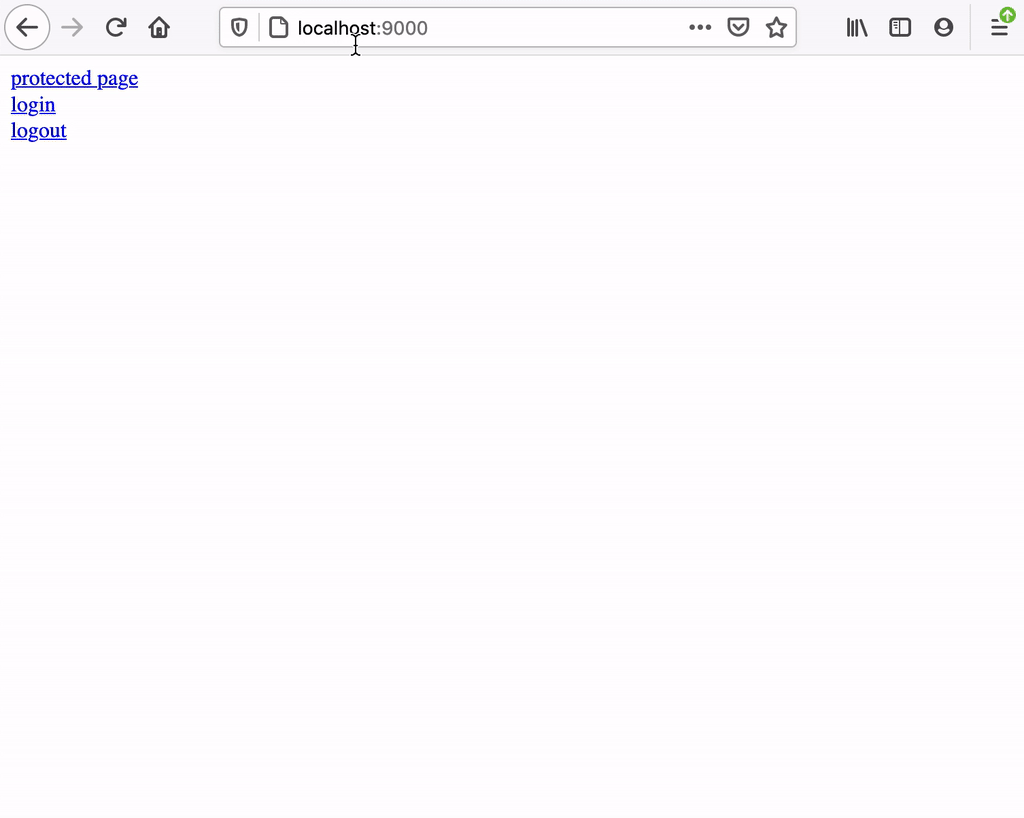Akka HTTP SAML authentication using PAC4J
Securing a Web application according SAML can be quite challenging.
This is inspired from akka-http-pac4j-demo, to demonstrate how to secure a Scala/Akka HTTP webapp (the Service Provider or SP in SAML terminology) using PAC4J.
The utility library akka-http-pac4j is use to ease the integration.
Requirements:
Local IDP
In order to be able to do it on local development environment, Keycloak is used as a local SAML IDP.
Keycloak can be freely downloaded, and official Docker image can be used:
docker run -p 8080:8080 -e KEYCLOAK_USER=root -e KEYCLOAK_PASSWORD=pac4j jboss/keycloak:12.0.4
Once Keycloak is started, its Administration Console can be access in a browser at http://localhost:8080/auth/admin/
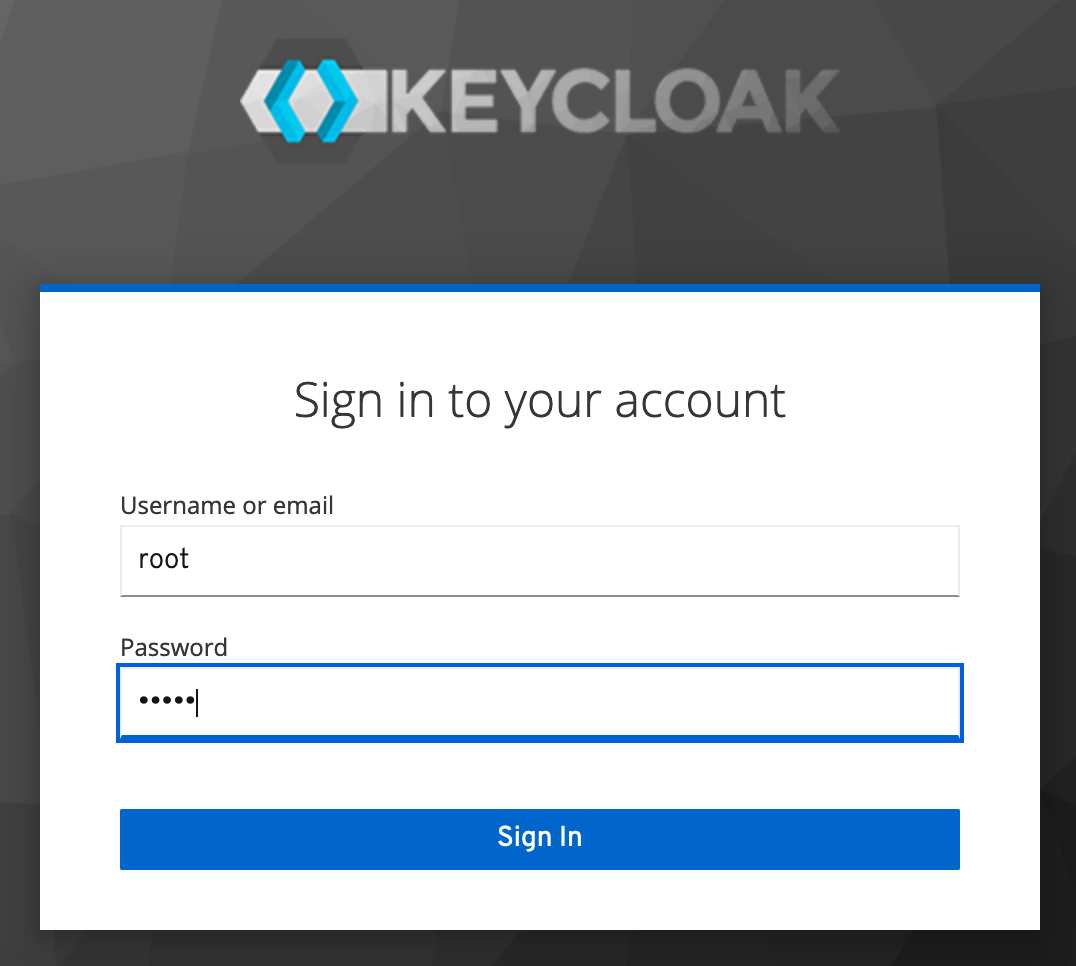
The authorized clients for the realm Master can be list in the Clients module (left menu). From there a new client can be created.
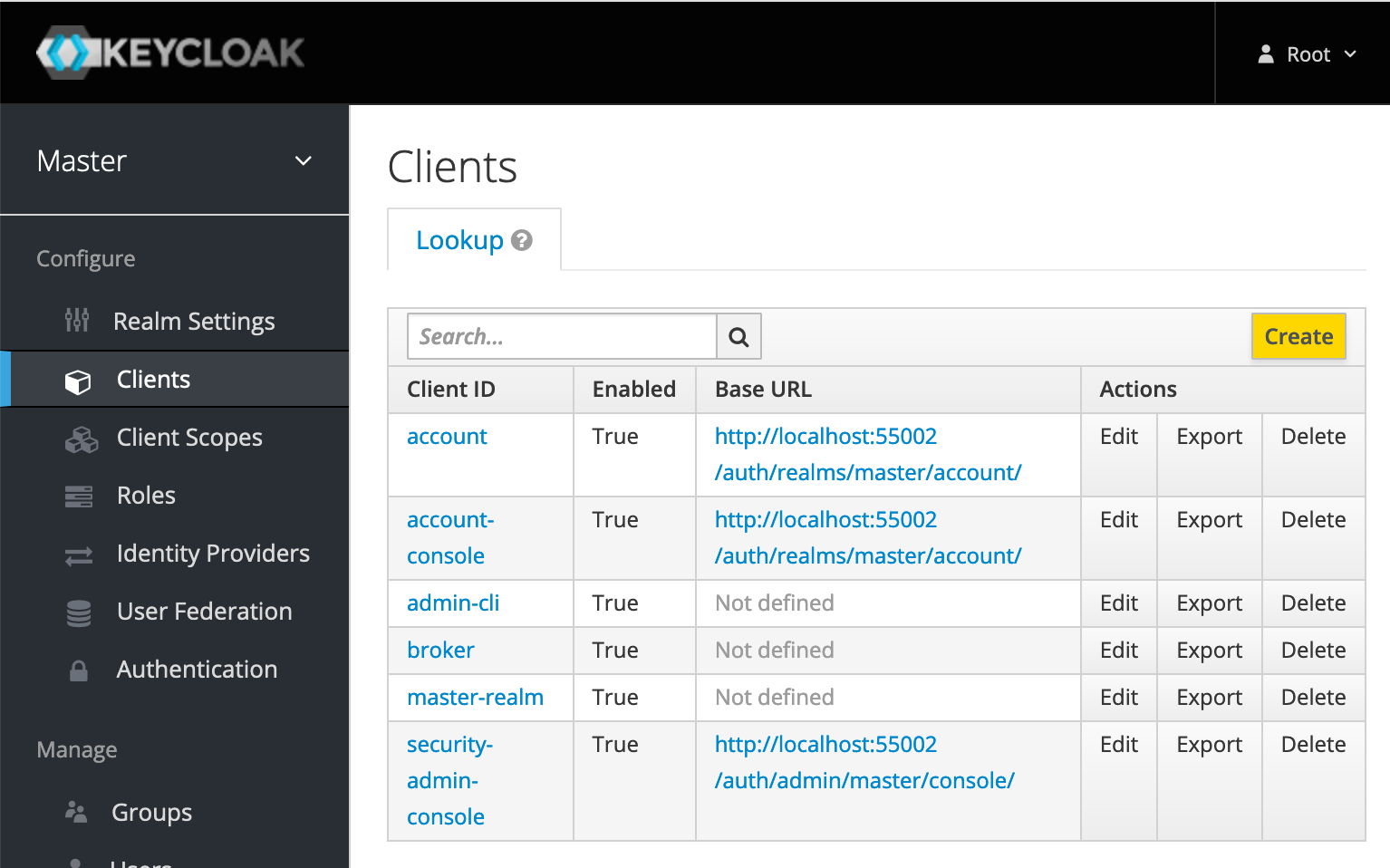
On the creation screen, we set pac4-demo-client as client ID and make sure the Client Protocol is saml.
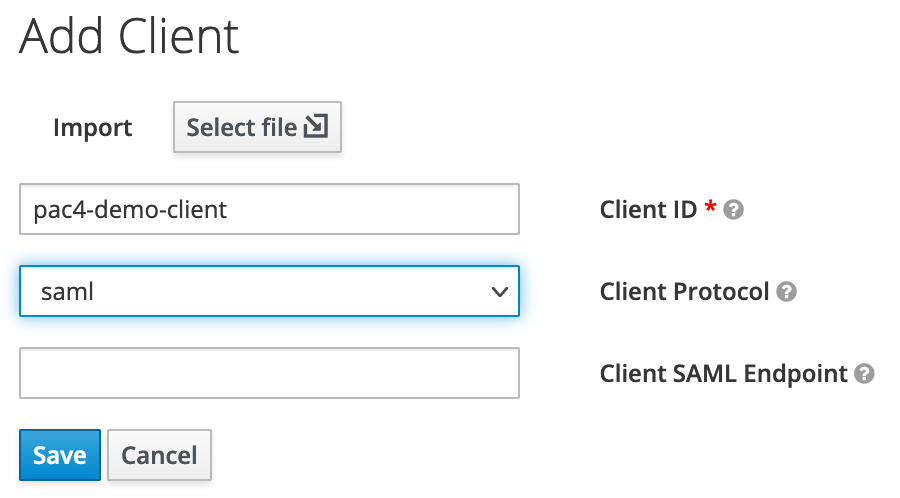
Then the detailed Settings of the client can be edited; Most importantly:
- Root URL:
http://localhost:9000for the base URL of the Webapp/SP to be secured - Valid Redirect URIs: Pattern
/* - Master SAML Processing URL:
/callback(forhttp://localhost:9000/callbackconsidering the set root URL)

Make sure to save (blue button at the bottom of the screen).
Once the client is configured, the SAML Keys are accessible from the corresponding tab on the top of the Client screen. We will just export these keys as a keystore:
- Archive Format:
JKS - Key Alias:
pac4-demo-client - Key Password:
pac4-key-pass - Store Password:
pac4-store-pass
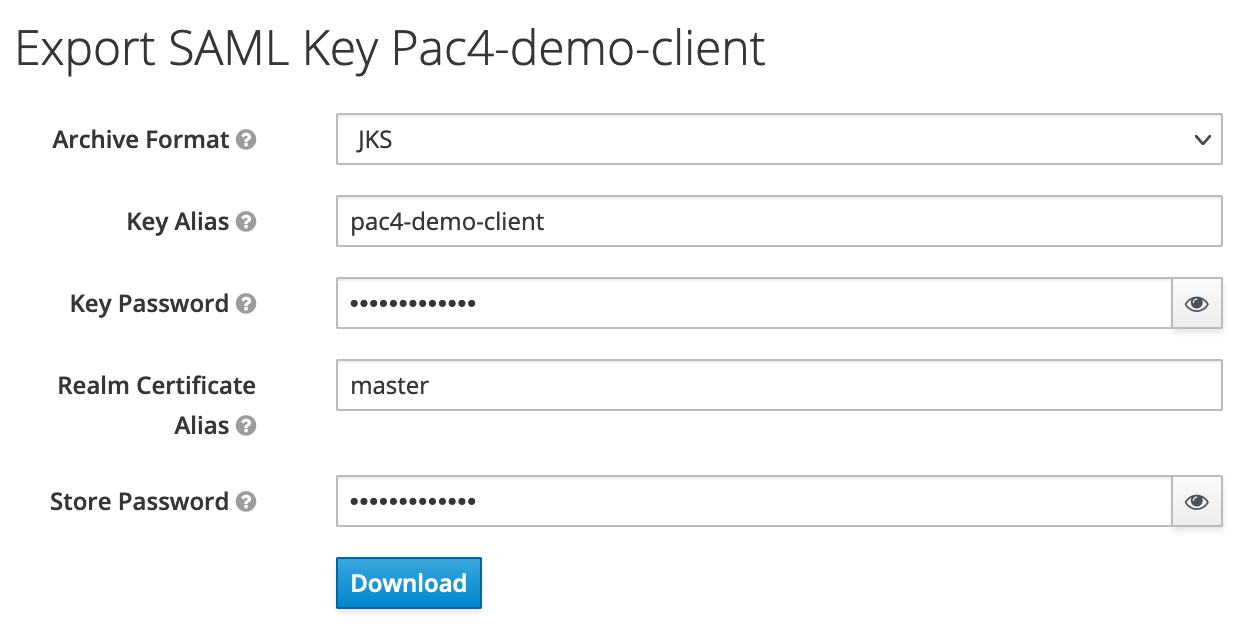
It must be downloaded (as file keystore.jks).
Then the corresponding SAML metadata for the Webapp/SP (aka SPSSODescriptor) is accessible from the Installation tab on the top-right of the client screen.
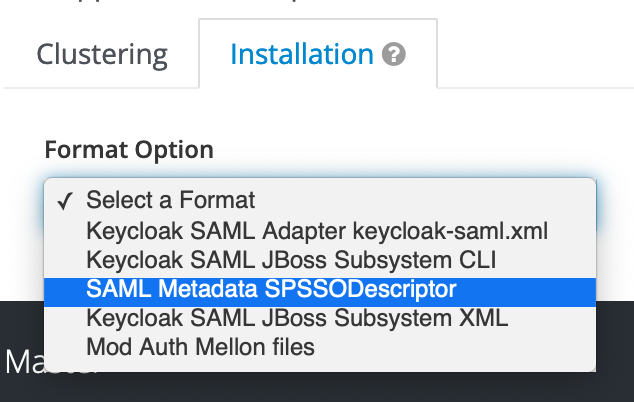
It must be downloaded (as file saml-sp-metadata.xml).
Finally, the metadata for Keycloak itself as IDP can be downloaded from http://localhost:8080/auth/realms/master/protocol/saml/descriptor and saved as file idpssodescriptor.xml.
Secure the Webapp
The sources of the demo Webapp can be checked out from GitHub.
The previous descriptors and keystore specifying the authorized SAML client must now be configure in the Webapp.
First the keystore.jks must be copied to src/main/resources/keystore.jks.
Finally the idpssodescriptor.xml must be copied to src/main/resources/idpssodescriptor.xml.
Test
At this point, the Webapp is properly configured as a secure SAML SP. To test it, open http://localhost:9000 in a private window browser.
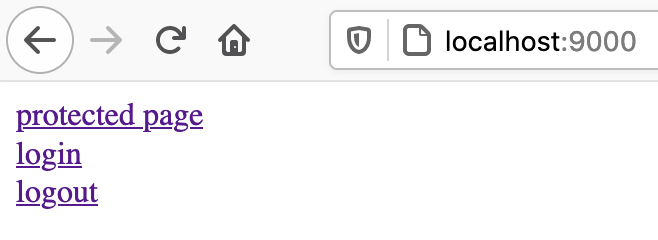
Then click on protected page. As not yet logged in, the browser will be redirected to the IDP (there the local Keycloak).
The root credentials (provided when configuring the Keycloak admin access) can be used to login.
Once logged, the browser is redirected back to the Webapp home, and the protected page is now accessible (the authenticated user is rendered as JSON there).
